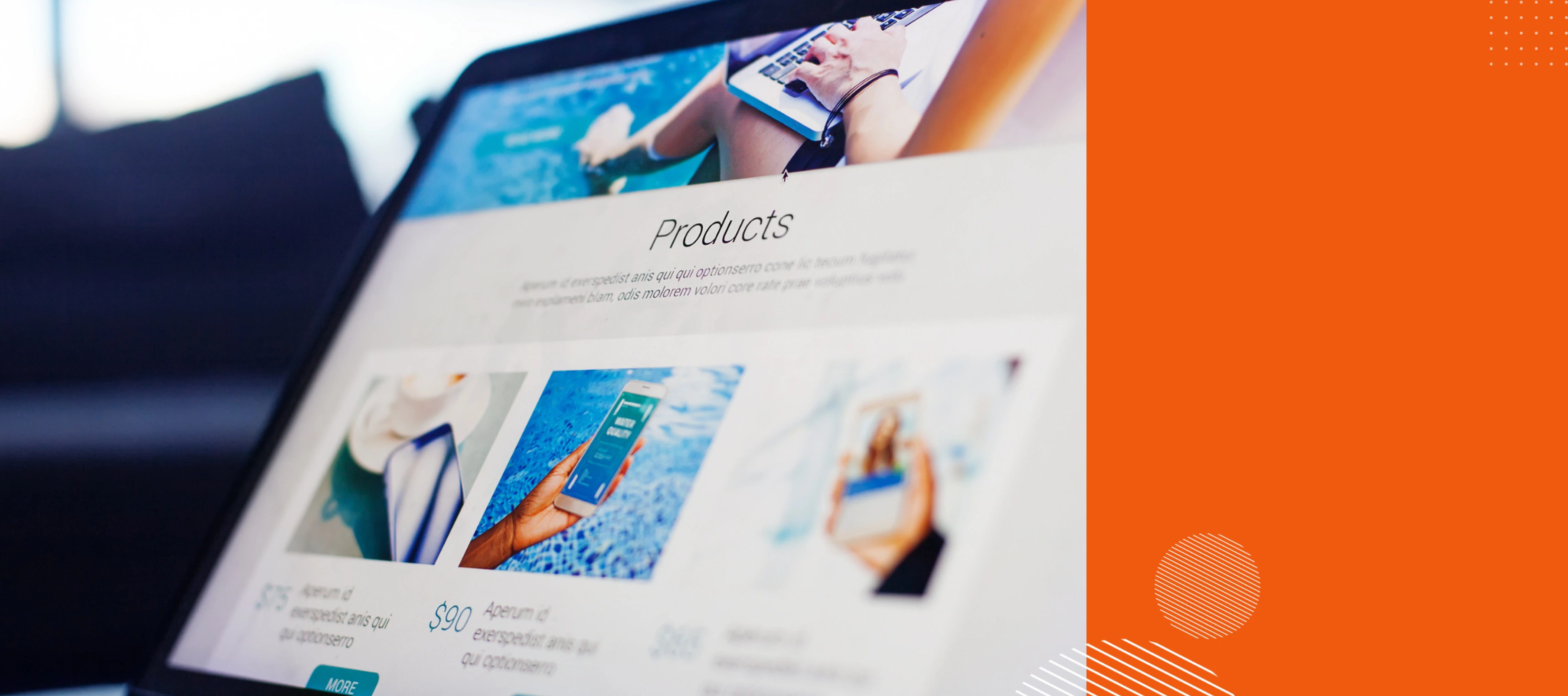Revolutionizing F&B eCommerce: Top Companies, Challenges, and Game-Changing Platforms
The ecommerce F&B industry as a part of FMCG is one of the biggest users of B2B food and beverage commerce platforms as the consumer need for this kind of products constantly grows. B2B sales between companies in the B2B food industry grow after B2C demand. InsightAge Analytics proves this theory in numbers: they believe that the B2B ecommerce market of the F&B industry will reach $841.79 billion¹ by 2031 (compared to 224.25 billion in 2022). The total volume of the B2B food and beverage market will grow almost twice².
As the food industry in B2B grows, all these companies are going to need some transformative solutions to skyrocket their businesses before their competitors do. This is why all of them need a robust B2B ecommerce platform tailored to FMCG ecommerce. In this article, we will discover the latest technological and business trends of food and beverage ecommerce solutions and discuss game-changing platforms like Virto Commerce.
Contents
- HOW FOOD AND BEVERAGE ECOMMERCE EMBRACES LATEST TRENDS AND INNOVATIONS
- KEY PLAYERS OF F&B ECOMMERCE B2B SECTOR WORLDWIDE
- F&B SOFTWARE IN SALES AND DISTRIBUTION MANAGEMENT
- EXPLORING ECOMMERCE FOOD AND BEVERAGE B2B SALES SOFTWARE AND PLATFORMS
- TRANSFORMING THE FOOD AND BEVERAGE INDUSTRY WITH VIRTO COMMERCE PLATFORM
- CONCLUSION
How Food and Beverage eCommerce Embraces Latest Trends and Innovations
According to the InsightAge Analytics report, the first trend that is going to change the industry is that a significant part of businesses will deploy their offers based on a buyer-oriented model. This means that the customer experience, customer-oriented UX, and marketing will be the main things to care about. Even now, businesses have started preferring B2C-like experiences on B2B ecommerce platforms and a lot of personalization.
It is worth noticing that the B2C-like experience doesn’t mean that the company can take the B2B ecommerce platform oriented to B2C buyers and simply tailor it to the B2B audience: the B2B solution must provide all the needed B2B options at first, but these options must be as easy and intuitive as the B2C solution offers.
One more challenge related to customer communication is the need for personalization and deeply customized customer products. Role-based access and customized pricing structures are essential. All this can be reached with customer portals or B2B marketplaces tailored for specific industrial needs.
Another trend is that with the evolving globalization interrupted by international changes, B2B ecommerce companies have to care more about the transparency of logistics and inventory. To reach this goal, businesses must choose software that can integrate with all their existing tools and programs easily, track any change, collect data, and send it all to the centralized solution, where they can control it all quickly and take quick action once needed.
Nevertheless, globalization is still growing, and more and more businesses are expanding to other regions. To succeed in new markets, B2B ecommerce for Food and Beverage has to use multi-regional, multi-lingual, and multi-currency software that could support whatever is needed in the new territory.
One more crucial upcoming trend is the emergence of AI and IoT, which also requires choosing an innovation-ready platform that can support all the future potential needs of developing specific AI-related features.
Key Players of F&B eCommerce B2B Sector Worldwide
Talking about giants and top food ecommerce companies forming the landscape of the B2B sector in F&B eCommerce, the biggest number of companies originate from the USA and China. Generally speaking, the Asia-Pacific region dominates the market, and this trend will continue. Let’s look at the key players that impact the whole market:
- Alibaba Group with an approximate total revenue of 126.49 billion U.S. dollars in 2023. The B2B share makes a significant part of this revenue. Generally, 35% of Alibaba’s B2B users are located in India, and 33% are located in the UAE. Beyond its impressive revenue figures, Alibaba Group has also been investing heavily in artificial intelligence and cloud computing technologies.
- Amazon, which leads the retail ecommerce in North America but earns less than Alibaba (around $35 billion) in B2B, aims to grow and is going to disrupt the North American B2B ecommerce market in FMCG soon.
- IndiaMART, an Indian retail chain, is not as big but is a really prominent and fast-growing FMCG chain with around $1 billion of FMCG-only revenue in 2023. The company is moving into new technologies and develops a proprietary payment gateway. This will enable them to enhance CX for its customers and vendors, especially in the FMCG sector.
Other prominent players mostly working in FMCG that can overrun their competitors are:
- Costco Wholesale Corporation, which generated $176.6 in the US only in 2023, uses a membership-based model and keeps its eye on the customer experience. Costco is exploring the integration of augmented reality (AR) and uses AI. This initiative means that the company adopts cutting-edge technologies un B2B food industry to stay ahead in the competitive retail market.
- Metro Cash & Carry has around $13 billion of revenue in Western Europe only. Metro Cash & Carry is actively enters new markets in South America and Southeast Asia. It is a prominent player in the wholesale segment that operates online and offline.
F&B Software in Sales and Distribution Management
Food and Beverage B2B ecommerce requires very specific software compared to other industries. Let’s see what is offered in the market and often used by F&B B2B ecommerce:
- Inventory management software is essential to automate inventory tracking. The companies can control stock levels, expiration dates, and reorder points. It is essential to look after the product's quality, and such software makes it happen.
- Order processing and B2B beverage management software is another important point of truth. Automated systems streamline order processing, which guarantees speed in logistics and saves quality.
- Any B2B ecommerce company basically uses customer relationship management. These systems manage customer data, track interactions, and facilitate marketing.
- Route planning and logistics are essential for the industry, where the speed and the quality are crucial. This beverage and food B2B sales software enables businesses to track all the logistics and control each partner working with them.
- Sales analytics and reporting tools are essential. Real-time data on sales performance and customers' needs to ensure that all the decisions made are data-based and will bring more profit and no loss.
- Supplier management. Streamlining communication and transactions with suppliers ensures the top management of procurement, contracts, and performance.
For the F&B industry, keeping the highest quality is essential, which means that the software that can embrace it all on a single platform can save the day (and the yearly revenue) of such businesses. Let's discover examples of such platforms.
Exploring eCommerce Food and Beverage B2B Sales Software and Platforms
Just like any B2B ecommerce business, this industry also needs B2B food and beverage commerce platforms. Here are some examples of such platforms popular among companies all over the world:
SAP for Food & Beverage
This is a cloud ERP provided by SAP. The vendor promises an industry-specific approach to connecting accounting, financials, inventory, food and beverage distribution software, and more. Looks like the platform offers most of the features F&B companies have. In reality, the solution is pretty rigid and restricts its users significantly from adopting the latest innovations.
Oracle NetSuite
This tool is both ERP and CRM. It means that besides of planning and accounting, it also enables business users to control and manage their customers. The good side is that the solution is cloud-based and easy to implement. However, this one is not too much tailored to Food and Beverage and also offers a preset amount of features without the capability to seamlessly integrate or innovate.
Fishbowl Inventory
This is a good solution for small and medium businesses that need to unify their inventory management experience. While offering great features for warehousing, the tool significantly lacks other features and is mostly tailored to inventory only.
Plex Systems
Cloud-based solution focusing on manufacturing operations, supply chain planning, and performance management. It works as a great solution with more features compared to the previous one. However, it is still not very scalable and is limited in functionality as it is tailored to small and medium businesses.
Virto Commerce
While we used to see Virto Commerce as a universal solution for any B2B ecommerce, it can become a great deal for Food and Beverage companies because it offers a full range of enterprise-level features, is easily adaptable, and can be used to build whatever tool you need with no restrictions to innovations.
Transforming the Food and Beverage Industry with Virto Commerce Platform
B2B ecommerce companies working in the Food and Beverage industries can significantly benefit from adopting Virto Commerce as their primary tool for FMCG sales. Here are the main benefits businesses can get:
- Virto works with any business model, so starting with B2B, you can further start a separate marketplace for D2C (direct-to-consumer) sales, and it will work well with the same B2C-like experience.
- Virto Commerce offers the fastest time-to-market: once the solution needs to be scaled, thanks to its cloud-native approach and scalability, the business will benefit sooner compared to other platforms.
- It can integrate with literally everything. Once you need to embrace all your tools and data on a single platform, choose Virto, and it will show the most outstanding performance.
- The capability to build multi-vendor portals and marketplaces is the same as building multi-regional solutions: Virto supports any language, can quickly adapt to any local requirements, and provides personalized capabilities for both different regions and different vendors.
- Any innovation can be adopted seamlessly thanks to Virto Atomic Architecture — a new modular approach that enables businesses to grow quickly.
All these benefits are proven by the real use cases of Virto Commerce customers who built B2B ecommerce for their distributors and partners based on Virto:
Heineken
In a Heineken digital transformation use case, you can find how the world-known brewer kickstarted their digital transformation with Virto in over 15 countries. All that the company wanted was to enhance its customer experience while growing bigger. Heineken achieved its goal with Virto, and it developed new features that were suddenly required in the process of growth: increased outlet coverage, grew basket size, and more, all with the Virto's capability to scale when it is needed unexpectedly, for example, in new markets with other demands.
DeKlok Dranken
One more Food and Beverage Distributor Use Case is DeKlok Dranken, the Netherlands beverage giant that replatformed to Virto from SAP, established a self-service portal for their partners in B2B food industry and easily migrated all their data. Now, each customer has access to specific information based on their roles, and the platform has transformed into a powerful marketing tool.
Lavazza by Bluespresso
Lavazza eCommerce use case is very specific. The business needed to build a unified, easily controllable solution for both B2B and B2C sales. The company replatformed to Virto Commerce and could integrate enormous catalogs and assign various pricing for different kinds of users depending on their roles and B2B or B2C appliances.
Conclusion
All in all, FMCG B2B ecommerce is growing, and it needs to comply with all the growing market demands. To ensure that you can adapt to any changes or even disrupt the market and overrun your competitors, ensure that the B2B ecommerce platform you choose is innovation-ready and will help you for years. Virto Commerce, a B2B ecommerce platform, is a good choice for those who want to keep growing while saving on innovations in the future. In case you want to learn more, book a meeting with our experts, and they will provide you with other real-case examples of how the Virto platform can skyrocket your particular business.
Useful Links
1. F&B industry will reach $841.79 billion by 2031 — InsightAce Analytic.
2. B2B food and beverage market will grow almost twice — Allied Market Research
Book Your Discovery Session with Our Digital Experts

 Comparing Virto Commerce: Identify Top 9 eCommerce Alternatives in 2024
Comparing Virto Commerce: Identify Top 9 eCommerce Alternatives in 2024








